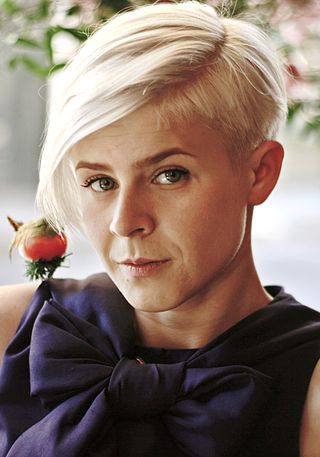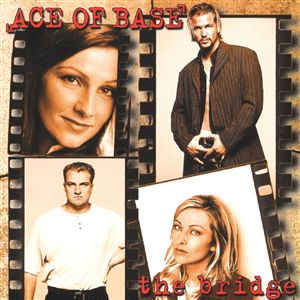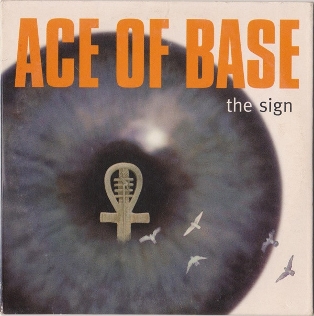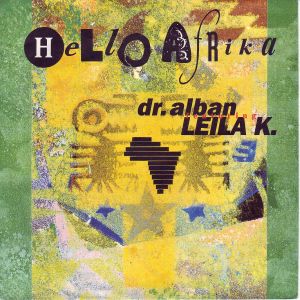
Robin Miriam Carlsson, known as Robyn, is a Swedish pop singer, songwriter, record producer, and DJ. Her 1995 debut album Robyn Is Here produced two Billboard Hot 100 top 10 singles: "Do You Know " and "Show Me Love". Her second and third albums, My Truth (1999) and Don't Stop the Music (2002), were released in Sweden.

Ace of Base is a Swedish pop group, formed in 1987, originally consisting of siblings Jonas, Linn, and Jenny Berggren, with Ulf Ekberg.

Karl Martin Sandberg, known professionally as Max Martin, is a Swedish record producer and songwriter. He rose to prominence in the late 1990s with songwriting credits on a string of hit singles, such as Britney Spears's "...Baby One More Time" (1998), the Backstreet Boys' "I Want It That Way" (1999), Celine Dion's "That's the Way It Is" (1999) and NSYNC's "It's Gonna Be Me" (2000).

Bo Martin Erik Erikson, better known by his stage name E-Type, is a Swedish eurodance musician, songwriter and record producer. His professional name is based on the Jaguar E-Type sports car.

The Bridge is the second album by Swedish pop music group Ace of Base. It was composed during 1994 and 1995, and released in Europe on 30 October 1995. It is the only Ace of Base album to feature sizable writing, production, vocal, and harmony contributions by all four band members.

Dag Krister Volle, better known as Denniz Pop, was a Swedish DJ, music producer, and songwriter. He co-founded the recording studio Cheiron Studios in Stockholm in 1992.

"The Sign" is a song by Swedish group Ace of Base from their first North American studio album, The Sign (1993), and their re-released debut studio album, Happy Nation (1992), titled Happy Nation . The song was released by Arista and Mega as a single in Europe on 1 November 1993 and the US on 14 December 1993. It was written by band member Jonas Berggren, who also produced the song with Denniz Pop and Douglas Carr. "The Sign" is a techno-reggae, Europop, and pop ballad with lyrics describing a couple contemplating the state of their relationship.

"Beautiful Life" is a song by Swedish band Ace of Base, released on October 20, 1995 from their second album, The Bridge (1995). In North America, it was the first single released from the album; in Europe, it followed "Lucky Love" as the second single. Co-written by band member Jonas Berggren and produced by him with Denniz Pop and Max Martin, the single reached number 15 on both the US Billboard Hot 100 and the UK Singles Chart in December 1995. It reached number one on the Canadian RPM Dance/Urban chart and Billboard's Hot Dance Club Play chart. In 2017, BuzzFeed ranked "Beautiful Life" number 51 in their list of The 101 Greatest Dance Songs Of the '90s.
Nana Hedin Pranschke, known as Nana Hedin, is a Swedish singer.

"All That She Wants" is a song by Swedish group Ace of Base. It was released in Scandinavia in August 1992 by Mega Records as the second single from the group's first studio album, Happy Nation (1992), and in the following year, it was released as the first single from the 1993 album The Sign in North America. Produced by Denniz Pop with group members Jonas Berggren and Ulf Ekberg, the drum beat was inspired by the Kayo song "Another Mother". Berggren and Ekberg also wrote the lyrics.

Robyn Is Here is the debut studio album by Swedish singer Robyn. It was originally released on 13 October 1995 in Sweden by Ricochet Records, Ariola Records and BMG. The original edition of the album only received a release in Sweden, Japan and certain Asian and Latin American territories. However, a revised edition received an international release throughout 1997 and 1998. The album peaked at number eight on the Swedish chart and was certified double platinum by the Swedish Recording Industry Association (GLF). In the United States, the album was certified platinum by the Recording Industry Association of America (RIAA), and had sold more than 922,000 copies by June 2010, according to Nielsen SoundScan. Worldwide, the album has sold over 1.5 million copies.

"Do You Know (What It Takes)" is a song by Swedish singer and songwriter Robyn, released as the third single from her debut studio album, Robyn Is Here (1996). In Sweden, it was issued as Robyn's third single in January 1996, while in the United States, it was released as her debut single the following year. The song was written by Robyn, Herbie Crichlow, Denniz Pop, and Max Martin, and it was produced by Pop and Martin.

"Right Type of Mood" is a song by English producer Herbie. It is produced by Denniz PoP and Max Martin, and was released in March 1995 as the lead single from his debut album, Fingers. It received various successes globally on both the commercial Pop and R&B charts and was supported by a partially computer generated music video, directed by Matt Broadley. The single reached number three in Sweden and number-one on the Canadian dance music chart. In addition, it peaked within the top 20 in Denmark and Finland. On the Eurochart Hot 100, it peaked at number 48 in March 1995. The song is a collaboration of synthetic drums and pads layered over striving constant and uplifting stabs and atmospheric arrangements. "Right Type of Mood" was also nominated to the Swedish Dance Music Awards in 1996 for Best Swedish Dance Track.

"Set the World on Fire" is a 1994 song recorded by the Swedish musician known as E-Type. It features vocals by singer Nana Hedin and was released as the first single from his debut album, Made in Sweden. The song was a hit in several countries, particularly in Sweden where it reached number 2. It was released twice, first in 1994, then in 1995, and also featured twice on the album Made in Sweden: in the original studio version, and in an acoustic version. In 1996, it was released in the United States and peaked at #22 on the Billboard Hot Dance Club Play; it remained charted for a total of 11 weeks.

"It's My Life" is a song by Nigerian-Swedish recording artist Dr. Alban. It was released by SweMix in February 1992 in Sweden as the first single from his second studio album, One Love (1992). Produced by Denniz PoP, who also co-wrote the song with Alban, it was a hit in most of the European countries where it was released, peaking at number one in Sweden, Austria, Germany, Italy, the Netherlands and Belgium and number two in the British countries. In France, the song was marketed twice: first in 1992, then in 1993 because the song was used in a TV advert for Tampax tampons, thus giving to the single a second career. The song had enough airplay on US college radio stations to chart on the Billboard Modern Rock Tracks in 1992. "It's My Life" was re-released in 1994 in Australia, following the success of "Sing Hallelujah!".

"Hello Afrika" is a 1990 song recorded by Sweden-based musician and producer Dr Alban. It was released as the debut single from his first album with the same name (1990). It features Swedish Eurodance singer Leila K. The song is similar to Eddy Grant's "Hello Africa", but in the style of hip hop. It peaked at number one in Austria and achieved a great success in most of the other European countries, including Sweden, Germany and Switzerland.

Cheiron Studios was a recording studio located in the Kungsholmen district of Stockholm, Sweden. Founded in 1992 by Denniz PoP and Tom Talomaa, it was famous for being the place where popular music acts of the late 1990s/early 2000s such as Backstreet Boys, Boyzone, Robyn, NSYNC, Britney Spears, and Westlife produced many of their greatest hits. In addition, Cheiron Studios was also a record label in affiliation with BMG for a while, and a music publishing service, although those ventures were abandoned in favour of music production.
Swedish popular music, or shortly Swedish pop music, refers to music that has swept the Swedish mainstream at any given point in recent times. After World War II, Swedish pop music was heavily influenced by American jazz, and then by rock-and-roll from the U.S. and the U.K. in the 1950s and 1960s, before developing into dansband music. Since the 1970s, Swedish pop music has come to international prominence with bands singing in English, ranking high on the British, New Zealand, American, and Australian charts and making Sweden one of the world's top exporter of popular music by gross domestic product.
Swedish Dance Music Awards was a Swedish dance music award that started in 1990 by John Wallin and Jonas Siljemark. At that time Swedish dance artists had no national media exposure compared to the massive coverage they were receiving internationally. Wallin and Siljemark felt that the home market of such successful artists didn't give the respect the artists deserved. That is how they came up with the idea of the Swedish Dance Music Awards. It was broadcast live on television and radio and got much media coverage.
MXM and Wolf Cousins are a pair of Swedish song writing and production organisations, founded and established by renowned songwriter and record producer Max Martin. MXM Studios and its affiliated producers are currently based in New York City and Wolf Cousins Music are in Los Angeles, California. However, both MXM and Wolf Cousins are headquartered in Stockholm, Sweden, where them and their works originate, as it was descended from the works of Maratone Studios and Cheiron Studios.
















